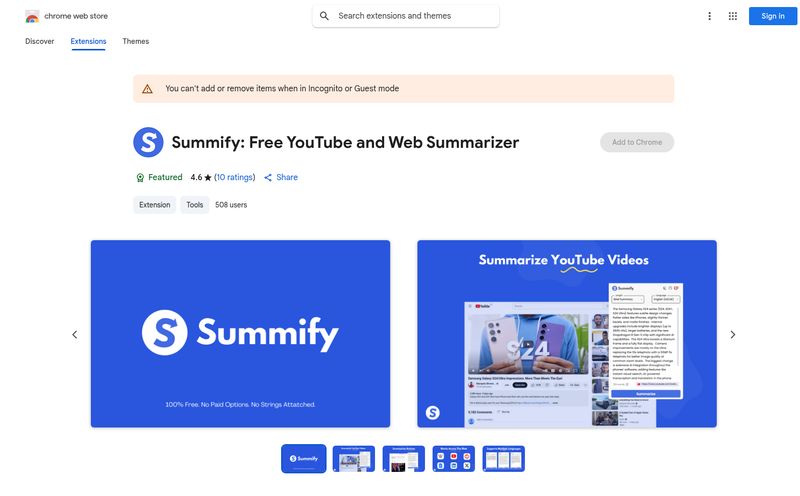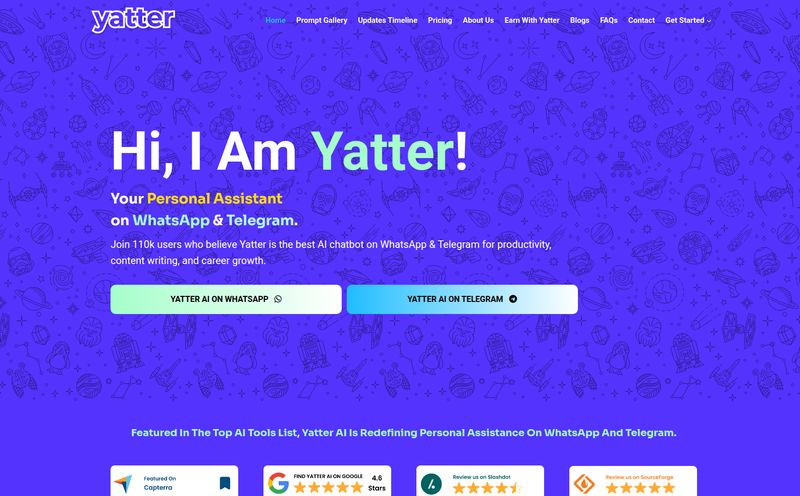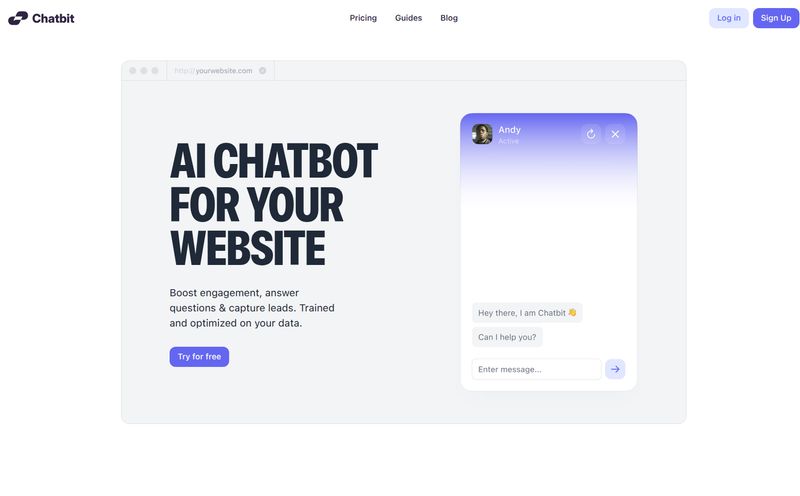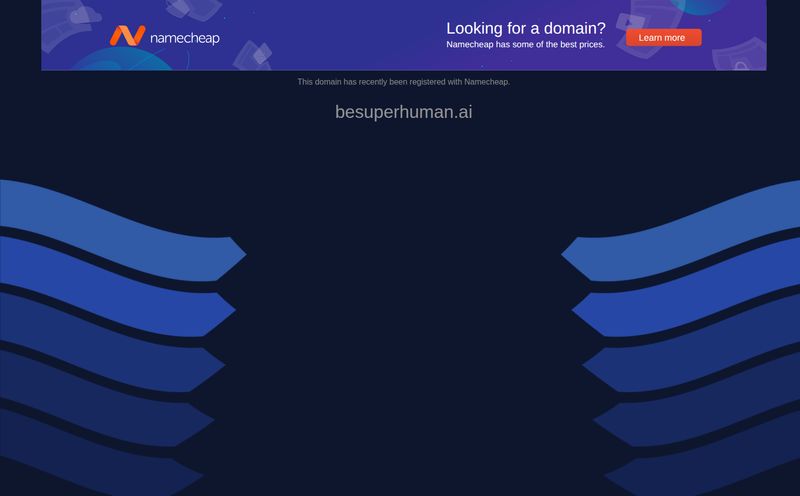If you're running a business of any decent size, you know the drill. The same customer questions pop up day in, and day out. "Where's my order?" "How do I reset my password?" "Do you ship to Antarctica?" It's a never-ending cycle that can burn out even the best support teams. I've been in the traffic and conversion game for years, and I've seen countless businesses hit a wall where they just can't scale their human support fast enough.
We've all been promised salvation by chatbots. We've all implemented one at some point, only to find it's about as helpful as a screen door on a submarine. They frustrate customers and create more work for our teams. So when another "Conversational AI" platform lands on my desk, my default setting is skepticism. But every now and then, something piques my interest. Today, that something is called Capacity.
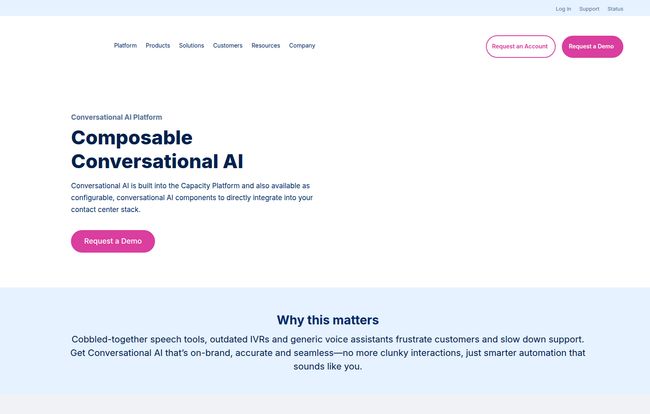
Visit Capacity Conversational AI Software
So, What is This Capacity Thing Anyway?
At first glance, it looks like another AI support tool. But the term they use is "Composable Conversational AI," and that's the bit that got me to lean in a little closer. What does that even mean? Think of it less like buying a pre-built, one-size-fits-all chatbot and more like getting a box of high-tech LEGOs specifically for customer interaction. You can build, combine, and configure different AI components to create a system that fits your business like a glove, not the other way around.
It’s designed to automate support across all the places your customers hang out—chat, email, SMS, and even old-school voice calls. The goal isn't just to deflect tickets, but to actually resolve issues, increase conversions, and free up your human agents for the tricky, high-value conversations. A lofty promise, for sure.
The Core Features I'm Actually Watching
A features list is just a features list until you see how it applies to real-world pain points. Here’s what stood out to me from a practical, ROI-focused perspective.
Intelligent Agents That Aren't Just Dumb Bots
Capacity's Intelligent Virtual Agents are the front line. The idea is to provide instant, 24/7 answers that are actually correct. The key here is brand consistency. We've all had that experience where one support agent tells you one thing, and another tells you something completely different. An AI, when trained correctly on your data, doesn't have that problem. It gives the same, approved answer every single time. This builds trust, which is the bedrock of any good customer relationship.
Making Your Human Team Even Better
This is where so many AI companies get it wrong. They preach a message of "replace your humans." Capacity seems to be taking a smarter approach with its Agent Assist + Live Support. The AI works alongside your human agents, feeding them real-time information, suggesting answers, and handling the repetitive data entry. It’s not about replacement; it’s about augmentation. It turns your support agents into super-agents who can handle more complex issues faster, instead of spending half their day looking up order numbers in three different systems.
Finding Your Brand's Voice, Literally
Okay, this is the cool part. We spend so much time and money developing a brand voice for our marketing copy, but what about when customers actually talk to us? Capacity allows for the creation of custom, branded voices. With some recorded speech, you can create a unique AI voice that sounds like your brand. No more generic, creepy robot voice that everyone immediately hates. They also offer a whole library of natural-sounding voices if you don't want to create your own.
And it gets better. They’re using voice biometrics for authentication. Instead of asking for your mother's maiden name and the name of your first pet, the system can identify a customer simply by the sound of their voice. It's faster, way more secure, and feels like something out of a sci-fi movie. I'm genuinely impressed by that.
It Knows When You're Mad (Sentiment Analysis)
An AI that can't detect emotion is a recipe for disaster. Imagine telling a chatbot your order arrived broken, and it replies with a chipper, "Thanks for your feedback! Is there anything else I can help you with today?" Infuriating. Capacity's platform has sentiment analysis built-in to detect the emotional state of the customer. It claims to understand more than 74 different emotions. This allows the system to respond with more empathy or, crucially, know when it's time to stop and immediately escalate the conversation to a human. This single feature could save so many customer relationships from going sour.
Who Should Be Looking at Capacity?
Let's be clear, this probably isn't a tool for a solopreneur or a small mom-and-pop shop. The language on their site—enterprise-grade security, integrations with CRMs and helpdesks, composable architecture—screams mid-to-large-sized business. If you have a dedicated support team, a call center, or a high volume of customer interactions across multiple channels, you are the target audience. If your company is struggling to maintain a high level of service as it scales, this is the kind of platform you should be investigating.
The Big Question: What's The Price Tag?
And here we have the elephant in the room. If you scroll through Capacity's website, you won't find a pricing page with neat little tiers. As a veteran of this industry, I can tell you what that almost always means: custom, enterprise pricing. You'll have to get on a call, do a demo, and they'll put together a quote based on your specific needs—number of interactions, features you want to use, etc.
I have mixed feelings about this model. On one hand, it's frustrating not to see a ballpark figure. On the other, for a platform this… well, composable, a one-size-fits-all price wouldn’t make sense. You're not buying a simple SaaS tool; you're investing in a foundational piece of your customer service infrastructure. So, be prepared for a sales conversation, not a simple credit card form.
A Few Practical Considerations
No tool is perfect, and it's important to go in with your eyes open. A platform like Capacity requires integration with your existing systems. That’s not a flaw, it’s just a fact. It needs to connect to your CRM, your helpdesk, your knowledge base to be effective. This will require some technical lift from your team. Also, that super cool custom voice feature? It needs samples of recorded speech to work its magic, so there's some setup involved. These aren't deal-breakers by any means, but they're practical realities to factor into your decision-making.
Frequently Asked Questions about Capacity AI
Is Capacity just another fancy chatbot?
Not really. While it has chatbot-like virtual agents, its main differentiator is being a "composable" platform. This means you can build a more complex, integrated AI system for support, automation, and even voice biometrics, rather than just a simple Q&A bot.
Will Capacity replace my entire support team?
The goal seems to be augmenting your team, not replacing it. It handles the repetitive, common questions, freeing up your human agents to focus on more complex, high-touch issues where a human is truly needed. The Agent Assist feature is specifically designed to make your existing team more efficient.
What does it take to get started with Capacity?
Since it's an enterprise-level solution, the first step is typically a demo and consultation. You'll need to be prepared to discuss your current support challenges, the systems you use (like your CRM), and your overall goals. It will require some integration work to connect it to your existing tech stack.
Can it really understand different accents and languages?
According to their materials, yes. The platform is designed to handle various accents, dialects, and even background noise. It also offers a multilingual voice library, so it's built for global business operations.
Is the voice authentication secure?
Voice biometrics are generally considered a very secure form of authentication. A person's voiceprint is unique, much like a fingerprint. Capacity positions this as an enterprise-grade security feature for verifying users without traditional, clunky passwords or security questions.
My Final Take on Capacity
I've seen a lot of AI hype over the past few years. Most of it is just that—hype. But Capacity feels a little different. The focus on a composable, integrated platform rather than a standalone gadget is smart. The blend of virtual agents, human agent assistance, and genuinely innovative features like voice biometrics and custom branding shows a deep understanding of the real challenges large support teams face.
Is it the right solution for everyone? Absolutely not. But for the right company—one that's choking on support volume and looking for a scalable, intelligent way forward—it could be a powerful contender. It's a serious tool for a serious problem, and in a world full of toy chatbots, that's refreshing to see.
